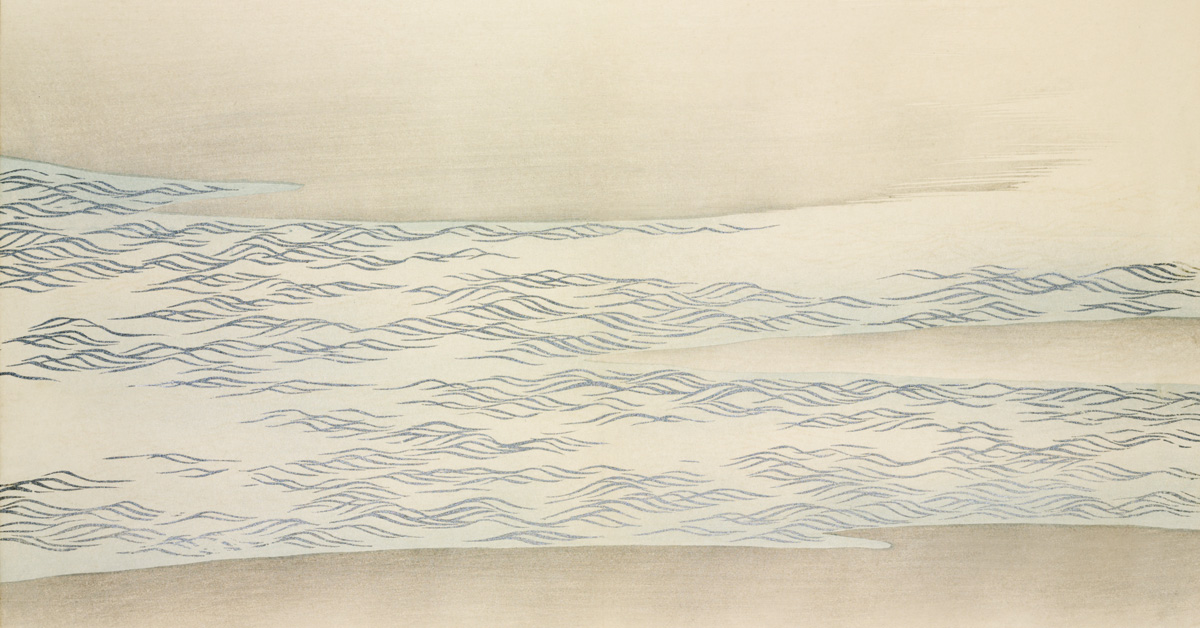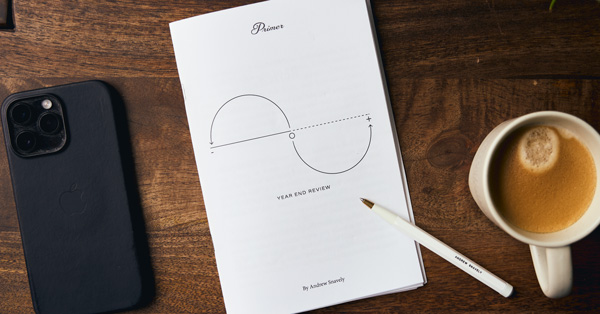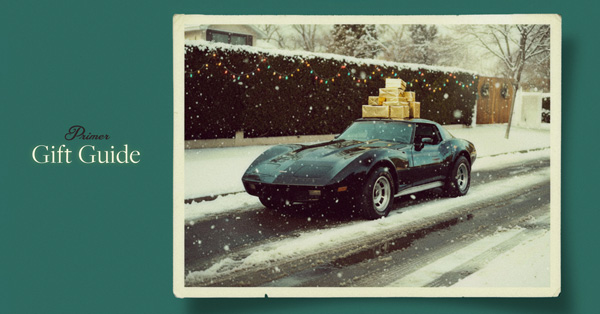It’s been a year.
A year of soul-withering Zoom calls and zits from face masks. A year of political upheaval and powerlessness. A year of stress, strain, and skull-numbing boredom.
Some of us have coped with exercise. Painting. Online gaming. Arranging carpet lint in order of how closely they resemble civil war generals (maybe that was just me). And if you’re the type of person used to being calm, collected, and in control, there’s a good chance you spent days, weeks, and months reasserting a sense of control by doing what you do best: planning.
Back-up positions, in case you ever lost your job. Budget revisions, in case you needed to free up some cash. Battle tactics, in case you need to fight to the death over toilet paper, gas, or whatever necessity people start panic-hoarding next. On its face, there’s nothing wrong with that. Being prepared for the future is what any responsible guy does, after all.
There’s a fine line, however, between strategizing for every outcome and letting our lives get dictated by things that happened (and likely never will). Men who pride themselves on independence and self-sufficiency are especially at risk of falling onto the wrong side of that divide.
Anxiety is a vicious cycle. We comfort ourselves in the face of uncertainty by prepping for any emergency. Problem is, “any emergency” includes our emergency plans failing, which leads us to creating back-up plans, back-up back-up plans, and on and on in a miserable, downward spiral.
So what’s the solution? When we find ourselves slipping, how do we escape doom-filled futures of our own designs and find our way back to the present?
One of the best solutions comes from a surprising source: the philosophy of haiku.
How Haiku Helps
Most of us will know haiku as a form of poetry originating in Japan – usually consisting of three lines with a 5-7-5 syllable pattern.
But saying haiku “is a kind of poetry” is like saying “punk rock is a kind of noise.”
Beneath the literary rules and restrictions, what makes a haiku a haiku is the effort to capture a real-world moment. It’s a devotion to absolute, unadorned simplicity as it presents two contrasting images. It’s about finding joy and humor in even the most mundane of places.
Strange as it may seem, the habit of reading, reflecting, and even writing some simple, three-line poetry can help us escape our own heads.
The same lessons that have enlightened and enchanted people around the world and across the span of the centuries can help us here and now, and it all begins with…
Being Present
this road –
with no one on it
autumn dusk
The irony of modern life is how much time we spend stuck in the future. When times are tough, we’re trying to keep one step ahead of our basic needs. When things are going well, we try to invest our precious hours in things that will pay off.
The next step in our careers. A new workout routine. The latest deadline, project, or chore. So much of our mental energy is devoted to planning ahead that we genuinely miss the world around us.
Haiku helps us remember.
In poem after poem, we’re offered snapshots of moments in time. We’re invited to imagine the sound of crickets on a warm night. The feeling of the clothes we’re wearing. The shape of birds on telephone wires.
Why do these utterly mundane things matter?
Because they’re real – infinitely more real than the most vivid dream of glory or fear orfailure. These are the things that comprise the vast majority of our limited time on earth.
Constantly bringing us face to face with the little moments that make up the universe, haiku serves as a crucial tool in reminding us to engage with life as it is.
That’s not to say that our visions for the future don’t matter (they do), only that haiku can help us develop a much healthier outlook – teaching us to distinguish what might happen from what actually is.
It gives us an all-important anchoring point for when our minds start to drift. It’s a place to come back to and a tool to help us get there – the same principle that governs the discipline of mindfulness.
Reading haiku teaches us to notice the world, grounds us in the present, and makes us more observant in general. But encountering reality is merely the foundation for what comes next.
Being Appreciative
not permitted to tell
how sleeves are wetted
in the bathroom
At the same time haiku develops our ability to notice the world, it sharpens our capacity to appreciate it.
The benefit of being more watchful is that we begin to discover surprising moments of beauty, grace, and humor in places we’d normally never look. We’re talking about the frantic energy of a squirrel racing up a tree trunk. The light that spills across the lawn as we pull into the driveway. Even the iridescence of an oil stain carries with it a degree of beauty if we allow it to.
These moments likely won’t be ones of jaw-dropping wonder and Hans Zimmer soundtracks.
They don’t have to be. With its bare-bones simplicity, haiku instructs us that we don’t need a constant barrage of bliss to havea good life. And to be clear – coaching ourselves to appreciate these small moments isn’t the same as promoting mindless, toxic positivity.
In the philosophy of haiku, appreciation isn’t merely a state of being thankful for what we have, it’s a skill for finding real goodness in daily life, in much the same way a trained survivalist can find food and shelter in even the bleakest of places.
That’s essential to us not just when we’re struggling through the trials and tribulations of life, but when we’re encountering the long stretches of boredom that adulthood so often entails. Recognizing the charm of daily life enriches it, yes – but it also helps us endure it. When life tries to break us (and it will try to break us), we’re going to need the ability to maintain our composure and perspective, even when everyone around us is losing theirs.
Being Humble
summer grass
all that remains
of a warrior’s dream
Perhaps, more than anything else, this is the lesson at the heart of haiku. We’re nowhere near as important as we imagine ourselves to be.
As we read poem after poem about cherry blossoms, winter snow, distant starlight, lightning flashes, the fleeting call of a heron, we’re asked to focus on the here and now outside of ourselves.
We’re shown thatwe’re one tiny part of a greater universe. A universe that was there before us and will be there long after us and doesn’t particularly care about our individual hopes and fears.
At first, that might seem like a disheartening outlooking, maybe even a nihilistic one, but nothing could be further from the truth. Do people matter? Of course, we do. There are as many haiku capturing moments of human tenderness, vulnerability, and empathy as there are frog ponds and mayflies. What haiku teaches us, however, is that we aren’t the centers of the universe. The fate of the world doesn’t rest solely in our hands and the realization thatwe’re not as important as we often imagine isn’t just a relief, it’s a liberation.
Yes, there’s a healthy sense of individualism and selfishness, but even those of us with good intentions (often because of our good intentions) can get lost inside our own egos. The humility that haiku teaches us isn’t about disparaging ourselves or our efforts – it’s about accurately seeing their place in the grand scheme. It’s about reminding us that we share the world with other people, other creatures, other places and things. As a result, we become more mindful, more empathetic, more patient, more caring.
After a year of isolation and anxiety, it’s time at last to get outside of our houses and outside of our heads. Haiku gives us a fantastic way to re-engage with reality, giving us a fresh perspective and a newfound appreciation for even life’s littlest details. It might not always be easy, but as the art of haiku reminds us, we don’t have to be perfect – we just have to “be.”












![It’s Time to Begin Again: 3 Uncomfortable Frameworks That Will Make Your New Year More Meaningful [Audio Essay + Article]](https://www.primermagazine.com/wp-content/uploads/2025/01/begin_again_feature.jpg)



